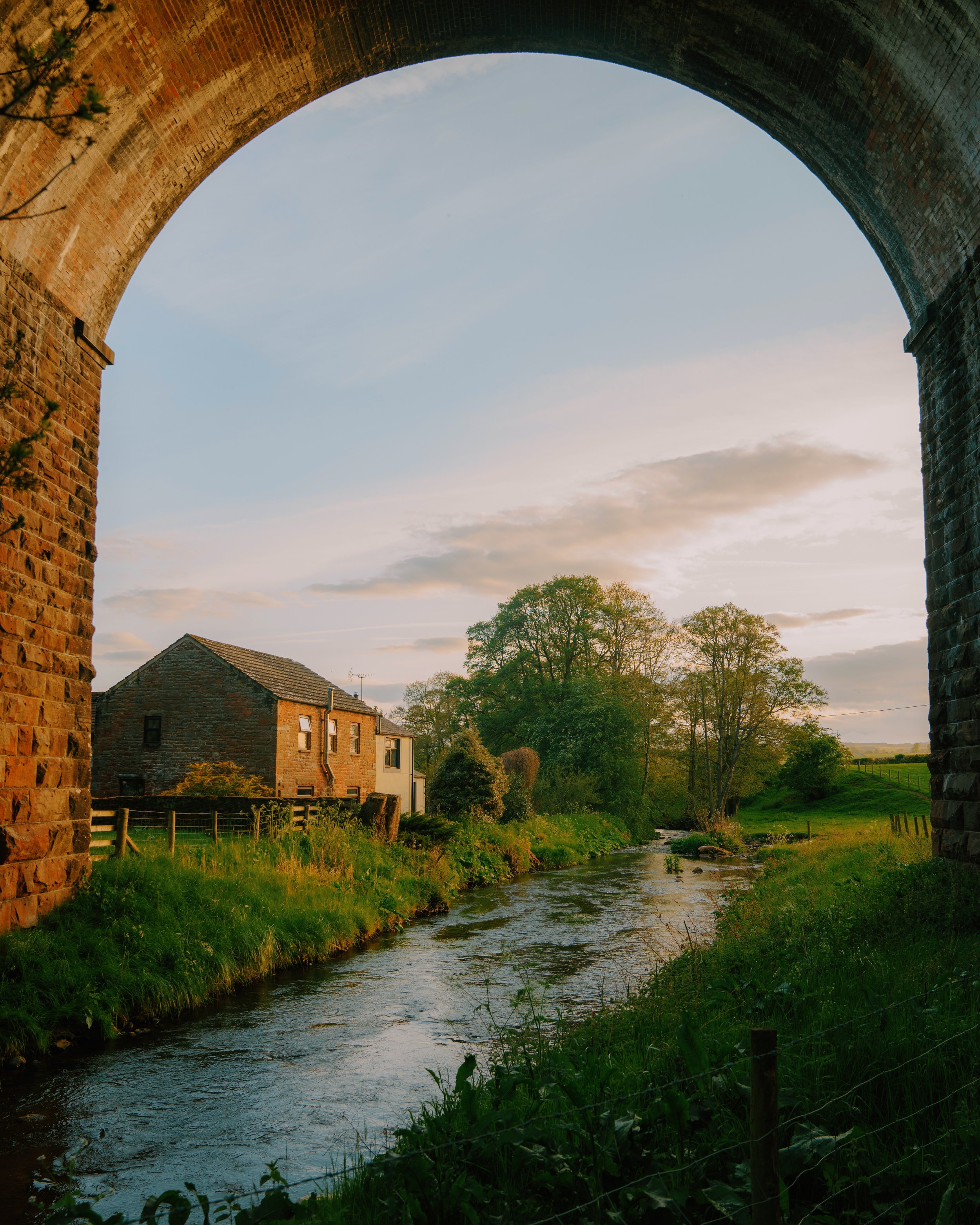Theology in the Grit

Theology in the Grit
Josh Nadeau
On Developing a Theology that Can Stand the Tests of Life
If you held me up at knifepoint, and asked me “how many ways of life are there?” I’d be perplexed at the philosophical depth of a mugger, and then I’d answer: “Two. There are two ways of living.” Genuine. Counterfeit. Those are the only two.
Sure, there are specific ways of living that get sorted under those two very broad umbrellas, but the point remains: our lives will either be genuine or our lives will be counterfeit.
Though dangers abound, the better way is to be genuine. Those who view all of life as an expression of honesty are under no guise; unmasked and free from all sorts of false pretences. Their way of life, these pioneers of sincerity, is raw, vulnerable, authentic, and, beyond a shadow of a doubt, gritty.
*
Four years ago my wife and I were living in Spain—on the coast of the Balearic Sea. Sounds glamorous, but it was a plan C to what we thought God was leading us into; a fall back plan (with a view). We were living off little, money coming in from my art and my wife picked up an online teaching gig.
The city was what you’d expect on the coast—ubiquitously quiet until it was overwhelmed by expats and tourists who would drink their days away while roasting in the Spanish sun. It was a lonely time—internet was spotty at best—and we were separated from friends and family and church community. Beautiful, but lonely.
And then my wife’s health seriously declined. Nights were spent awake, fearful if she was going to make it. The sun would rise over the sea, and we’d grit our teeth, tighten our shoulders, and prepare for another day. Living in the overlap of intense beauty and intense pain. Of both tears and laughter.
We took a trip to Guadalest, in the mountains of Valencia. Try to get a bit of space to process exactly where God had led us, how he could allow this, and wondering if we messed it all up.
At the same time, mesmerized and filled with the joy of this ancient and beautiful city. While walking around a lake, telling jokes and stories, my wife said: “I feel like I’m looking at life from the outside.”
That she could understand, in a new way, what it looked like for people to live busy little lives, never questioning, never being genuine with the sharp swords of reality. The joy and the sorrow.
This lonely and beautiful Spanish season, wrought with both suffering and joy, had exposed, once again, our deep need to be authentic and real. That the only way to truly live was to take each experience at it came; to feel it, to learn from it, and to grow.
Those who live with open eyes, broad minds, courageous hearts—those who face the times with their full face are liberated from a thousand prisons. They will feel the radiance of the sun, be soaked by the storm, and thrashed by gales. They will experience joy.
It will not always be easy, but it will be genuine. There is no pretending. No stifling. No forcing life into a contained and controlled box. Each aspect of life, both the heavenly and the hellish, are heeded and given space for expression.
The pain of loss is expressed as honestly as the pleasure of a kiss. The dread of betrayal is articulated as freely as the hope of fidelity. The weakness of loneliness is conveyed as sincerely as the strength of camaraderie.
There is an embodied theology that is ever-present in this genuine way of life: the idea that the only true way of knowing flows from an honest sort of living. We know, not just with our minds, but with our bodies. We know by living, and we know deeply by living deeply.
*
The philosophers say that we often know by contrast. We understand by grasping the difference between two or more things. For the child locked in a dark basement by his older brother, a beam of light is hope eternal. Can we imagine what a warm hug means for one who is socially isolated, lost, and lonely?
In the same way, the contrast to the genuine life is that which is counterfeit: a life that has been built on superficiality and social charades—the constant work of keeping up appearances. This way of being becomes subsumed by the curated life—suppressed and repressed in order to fit into some cherished or socially desirable category. I call it an ontology of “keeping up with the Joneses.” Those who live this counterfeit life betray their deepest held motivation of self-preservation.
Everything, and I do mean everything, is sacrificed on the altar of perfectionism. That death, the death of sacrificing everything we are, breeds the maggots of comparison, harsh expectation, and false comfort. When suffering comes, and it comes for all of us, the core of the counterfeit life emerges. The fabricated reality, the cognitive dissonance, the perfunctory platitudes—shaped not by thought nor meditation, but by a tyranny of security—all bubble up as some sort of tenuous barrier. Self-preservation at all costs.
In this mode of protection, genuine emotion is quickly shuffled off the edge of a cliff—and with it genuine living. The dance of questioning and the song of curiosity are quieted, hushed, and sedated. False certainty reigns, anything considered “negative” is executed. What remains is, at best, a half-life.
The result is a low-grade, ongoing tragedy—and if we stop and listen, even for a moment, we can hear the clanging of Death’s double edged sword, hunting down these counterfeit lives.
*
We understand by contrast, and if we live as though suffering is non-existent or just a temporary bump in the road, one easily ignored, we forfeit our understanding and enjoyment of true pleasure.
When we kill what is real and genuine within us—neutering it into safe and explainable platitudes—we lose more than simply what we fear. We lose what we loved. And we lose the ability to love. And we lose the ability to live.
And so, the choice is yours, whether to live a genuine, embodied reality or to live in a false heaven of the mind, which will, inevitably, one day turn hellish. We have the choice to pursue the raw, unexplainable mystery of going beyond mere existence—to find the heartbeat and pulse of what we all desire: Life. It’s here, I believe, and only here, that we can do anything that truly matters.
Studying, writing, or speaking about theology—both specifically in seminaries and churches, or more broadly in a life lived as a Christian—is doomed if it is done by those who live counterfeit lives. For what can one begin to say about a theology of the body if they have never been honest with the pains and groans and longings of sex, pain, exhaustion, depression, or eating disorders?
What hope can one offer to those suffering, if every time the hounds of hell round the corner of their lives, they plug their ears, shut their eyes, and sing Sunday school songs, pretending like nothing is going on?
Counterfeit lives offer very little, though they market and advertise well; they are quite easily placed on a platform—whitewashed tombs, if you ask me.
Theology cannot be done separate from the harsh reality of the fallen world. That’s because theology isn’t just an enterprise of the mind. It is a journey of the heart and an experienced wisdom. Somehow, and for various reasons, we have divorced theology from what is most natural to it: life and worship.
Spain was the nail in the coffin for me learning this lesson. I had a theology of suffering—one that made sense. It was philosophically savvy, biblically coherent, and answered the big questions. But it was only intellectual. It didn’t exist on the ground. It wasn’t embodied.
And when the fear of losing my wife, alone in Spain, hit me - my theology fell apart. It didn’t save me from the dread of each day; it made it worse. The ideal I held to had crumbled, the lie that kept me safe buckled under the crippling weight of reality.
I had separated my thinking from my living. I needed something better. Better for me, better for my wife, and better for whatever community I found myself in down the road.
I needed a kind of theology that, when the harshest seasons of life came, filled me with love and trust. That when I saw my wife weeping in pain, I could, somehow, embody both the security and empathy of Jesus for both of us. That my impulse would be a sort of lived trust in the Father.
And as I tried, even at that stage, to embody this reality—all sorts of new thoughts and feelings flooded in. I didn’t see Jesus as something to be dissected and systematized. He became a friend that was closer than a brother. I was living a “theology” that my mind couldn’t understand. And it didn’t need to. I needed to experience love—not process it.
And so, at last, my appeal is to reset our foundations. To pursue a very particular way of life—one that is deeply and relentlessly honest. It is not easy. It is both humbling and humiliating; unnerving and often ostracizing. For the most part, people are terrified of those who are genuine. Unadulterated tears and laughter horrify the one who cannot picture life with open eyes.
There is a deeper strength for those who choose to live the genuine life, one that has almost gone unmentioned. It is only in this place of true honesty that we can begin to comprehend and experience victory, and therefore begin to develop a robust theology of joy.
It is only those who see the storms that develop the strength to dance in them. It is only those who have been burned by the fire that will ever pass through the flames. It is only those who have been shipwrecked that will one day walk on water.
Living is gritty work. It is a vale of tears. And our Saviour was a man of sorrows, familiar with suffering—I think it’s best that we follow in his path.
We, like Jesus, must be honest with the pain, honest with the pleasure—learning to tell the difference between life and death, victory and defeat, heaven and hell. Finally, in that space of unity and congruity, we will begin to think his thoughts after him.
Selah.
Josh Nadeau
Full Time Artist & Writer
Josh is the Artist Behind Sword and Pencil and is the Founder of Every Day Saints
Photography by Derek Malou




